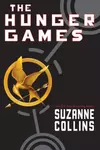
Brie

Of all the stories, I especially enjoyed "Petra", "Stone Lives", and "Red Star, Winter Orbit". The other stories were fine. I typically think anthologies are helpful for getting an idea of whether one wants to read more of a particular author's work. Interestingly, I enjoyed William Gibson's contributions in this anthology far more than his other works. In the co-authored "Red Star, Winter Orbit", I finally found the Gibson I've been wanting to read.
The blurbs before each story are well done and I walked away wanting to read more from Greg Bear and Paul Di Filippo.
The stories range in length from ~30 pages to 110+ (the first "Freezone" piece).
I am quick to DNF books I don't enjoy. I considered marking this DNF: the stories I liked weren't enough to make the entire anthology compelling reading. Ultimately, I read it all because it's on my r/fantasy bingo card and I have just over a week to go.
[ ℹ️ I read this for an IRL book club. ]
I found this book while browsing NPR's "Books We Love".
This was a fun, light read. Yet, there were a few surprisingly bittersweet and tender moments in the book. The author's passages of dialogue are good: there's no need for "he said" or "she said" and the reader always knows who is speaking.
I did not particularly care for many of the characters. Steve experienced some growth but the others were one-note and uninteresting: I did not feel very vested in their fates.
Using ChatGPT to disguise the criminal's voice was a new twist on an old genre. I don't like the idea of reading a book that contains content that was generated in part by ChatGPT (even if susbsequently edited). The book carries no disclaimer about this one way or the other.
🐈 Also: I expected more cats.
Originally posted at read.brie.dev.
💯 This book is wonderfully researched. The subject matter was darker than I expected from the playful nature of the title and the book cover. I walked away from this book with a stack of notes, a few things I'd like to read to supplement the material covered in the book and a better understanding of the alt-right than I was prepared for.
😐 As a fan of Stoic authors like Aurelius, Seneca and Epictetus, it was difficult to hear how their intent has been grossly misinterpreted. This book was worthwhile for the critical examination of Stoic thought and the reminder of the perils possible when attempting a poorly informed interpretation of ancient thought for the modern world.
🦋 The book was heavy on “this is the problem” and very light on “and here's what can be done about it”. As a result: by the end of the book, the reader is left feeling that the future is a bit bleak.
⚠️ TW: Some of the descriptions in the book are very graphic. Read with care.
I love Neal Stephenson. I love spy novels. I am curious about all things Soviet era. This book should have been a slam dunk ⭐⭐⭐⭐⭐ for me. I excitedly bought the hardcover and chose to start the series before it was completed.
My faith in Neal was not rewarded. This is the shortest Stephenson work I've read and it was the longest slog.
- The setup is a great idea. The backdrop of the World's Fair is promising.
- The execution doesn't work for me. It all fell flat and I'm not going to finish the trilogy.
- The book meandered. I expected it was the beginning of a trilogy but I didn't walk away caring about any of the characters or what would happen next.
Tana doesn't need the Dublin Murder Squad to write a good book! This feels (and was intended to be) like a Western set in Ireland. The cowboy, Cal Hooper, is a former Chicago cop who retires to the countryside for quiet but doesn't find it. You learn bits of what drove Cal out of the force and how he perceives systemic racism in policing but only 1 or 2 pages on the topic.
A small detail to capture what I love about Tana's writing: the rooks on Cal's land are almost elevated to characters, a remix on a Greek chorus. They are standoffish and insult him, they ignore him or make fun when he hurts himself. They aren't a big part of the story but the detail helps to build out the environment, especially when there's only one neighbor near enough to stop by.
I was really nervous about reading this book because of the whole “prayer log” thing.
I just finished the book and: wow! The ending of the book was wonderful and I was compelled to flip back and read the last scene twice. The book isn't very nice and nothing is made easy for any of the characters but your commitment to making your way to the end of this book will be rewarded.
In my opinion, the worst of the disturbing content is in the first few chapters. Once that's over, it's mostly done and it never gets as bad as it is in the beginning of the book. I almost stopped reading but didn't and it was the right choice.
This was an absolutely fantastic look at pre-WW2 Italy. I highly recommend this book to anyone interested in current events. Undertanding the origins of fascism is really enlightening, especialy at this moment. You may learn a lot about the inner workings of the Vatican, too.
Note: you may wish to review the unification of Italy and general history of Italy from ~1840-1920 as a good foundation before reading this book but that is not at all necessary.
















































